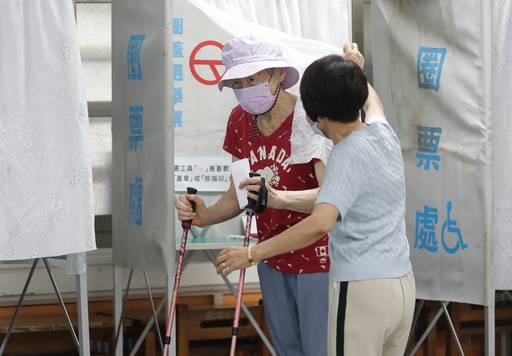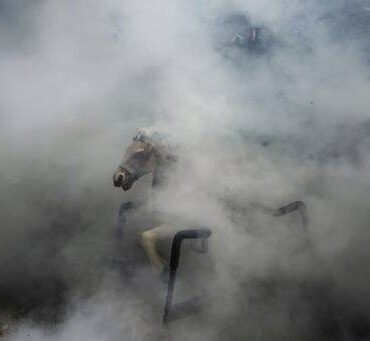Taiwan votes in bid to oust lawmakers from China-friendly party

HONG KONG—Taiwanese voted on Saturday to determine whether to oust about one-fifth of their lawmakers, all from the opposition Nationalist Party, in elections that could potentially reshape the power balance in the self-ruled island’s legislature.
The independence-leaning ruling Democratic Progressive Party won last year’s presidential election, but the China-friendly Nationalists, also known as the KMT, and the smaller Taiwan People’s Party have enough seats to form a majority bloc.
Those who support removing the 24 lawmakers are angry that the KMT and its allies have blocked key legislation, especially the defense budget, and passed controversial changes that are seen as diminishing the power of the executive and favoring China, which considers the island its own territory.
The opposition parties’ actions sparked concerns among some Taiwanese about the island’s democratic integrity and its ability to deter Chinese military threats, leading to the recall campaigns. The scale of the recall elections is unprecedented, with another seven KMT lawmakers facing similar votes on Aug. 23.
Political retaliation
But the KMT alleged the ruling party was resorting to political retaliation after it lost the legislative majority, saying the recalls were undermining and challenging Taiwan’s democratic system.
The KMT holds 52 seats, while the ruling DPP holds 51 seats. For the DPP to secure a legislative majority, at least six KMT lawmakers would need to be ousted, and the ruling party would need to win all by-elections, which would need to be held within three months following the announcement of results.
For the recall to pass, more than a quarter of eligible voters in the electoral district must vote in favor of the recall, and the total number of supporters must exceed those against.
If KMT loses its seats in the recall elections, the party can file new candidates for the by-elections and may be able to win back the seats.
Outside a Taipei polling station, voters old and young were waiting in line to cast their ballots. The poll will close at 4 p.m. local time, with results expected on Saturday night.
The elections have intensified tensions between those backing the status quo and those favoring improved ties with Beijing.

















